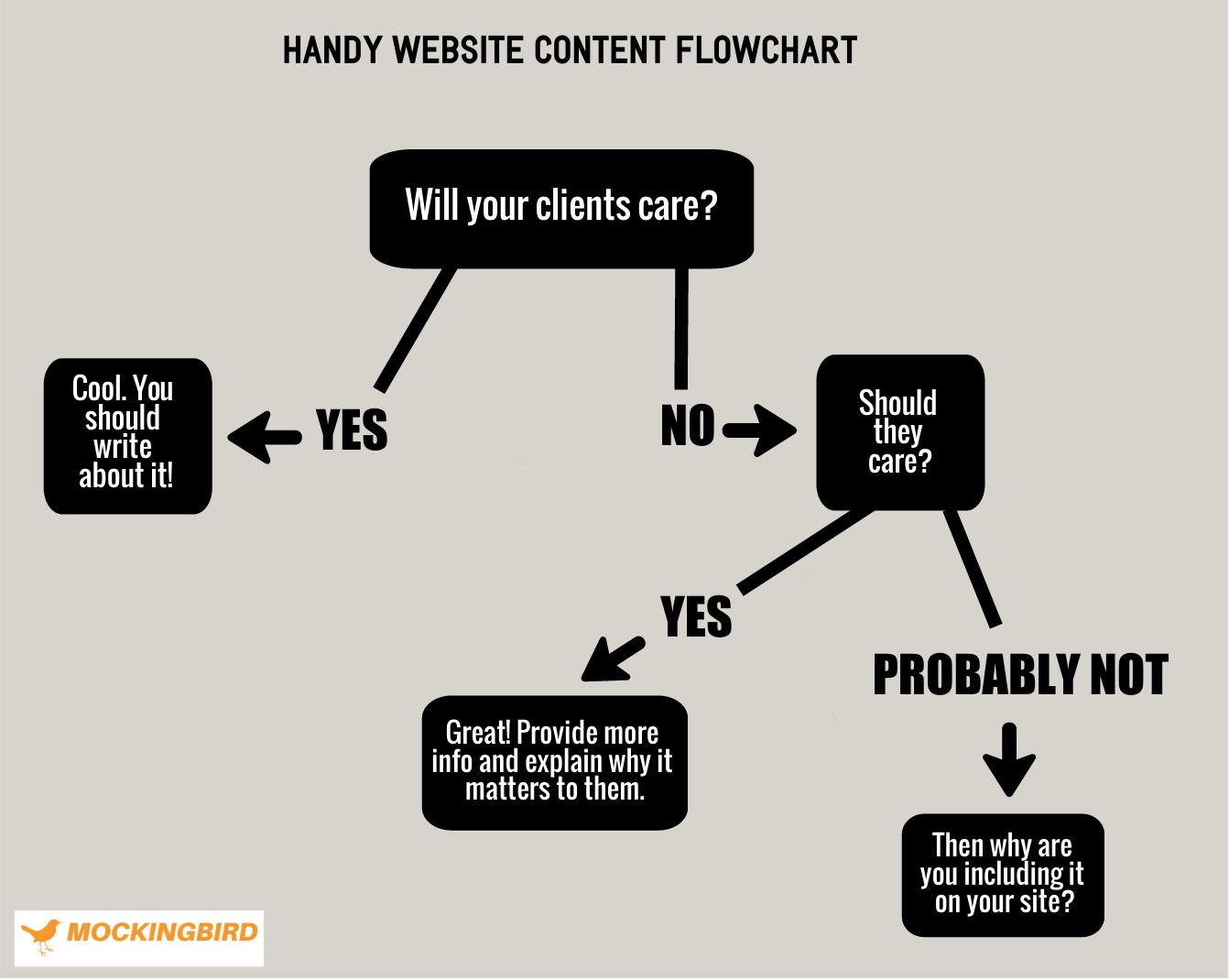Focus on What Your Clients Care About

This might be one of the most obvious blog posts out there, but given the number of sites we run across that seem to be missing this critical piece of advice, it’s worth repeating. The way to turn prospects into clients is by focusing on what the client cares about and offering a solution to their problem.
Most clients aren’t overly concerned with where you went to school, whether you’re a Lawyer of Distinction, or what your Martindale Hubbell rating is. All they care about is whether you’re going to be able to help them. What exactly does that mean though?
How should you be selling yourself to prospective clients?
According to Avvo’s white paper on How to Adapt to the New Legal Consumer, “three out of five legal consumers go online at some point to investigate and/or try to resolve their legal issue.” This shouldn’t be shocking news, but that means 60% of your potential customers are coming to your website with a specific problem in mind and a hope you can help solve it.
As a result, tailoring your messaging, blog posts, and resources to what your clients are most concerned with will pay off in the form of increased traffic and conversions.
Your focus should be positioning yourself as an expert and doing everything you can to answer the questions facing your clients. If your messaging isn’t built around how you can help your clients solve THEIR problem, you’re doing it wrong.
The more resources you can provide to potential clients the more likely they are to view you as an authority in your practice area. Proactively answering questions and addressing the issues your clients care about before they contact you is a great way to signal visitors that you’re the right person to hire for their case.
This doesn’t mean you need to build 1000s of resources to answer every possible question a prospective client might have. All it means is that if you’re not focusing on answering the four or five most common concerns facing your clients you’re missing an opportunity to start building a relationship with clients before ever speaking with them.
The same Avvo study on the “new legal consumer” also found that “37% of consumers try to resolve their situation themselves once their issue is triggered.” While some of those clients might be successful, and may never need to contact you, there’s still a significant percentage that will ultimately fill out a contact form or pick up the phone.
None of this is to suggest you stop sharing your achievements, showcasing your credentials, or even posting a few select badges on your website. All it’s suggesting is that you don’t lose sight of what’s driving your customers to contact you in the first place.
Given the limited attention spans of people visiting a website, your initial message should focus on what they’re looking for, address what they’re concerned about, and show them why there’s no need to look anywhere else.
If prospective clients landing on your website feel like you’re providing a solution instead of talking past their needs, you’ll be in a great position to convert your site’s traffic into actual revenue.
